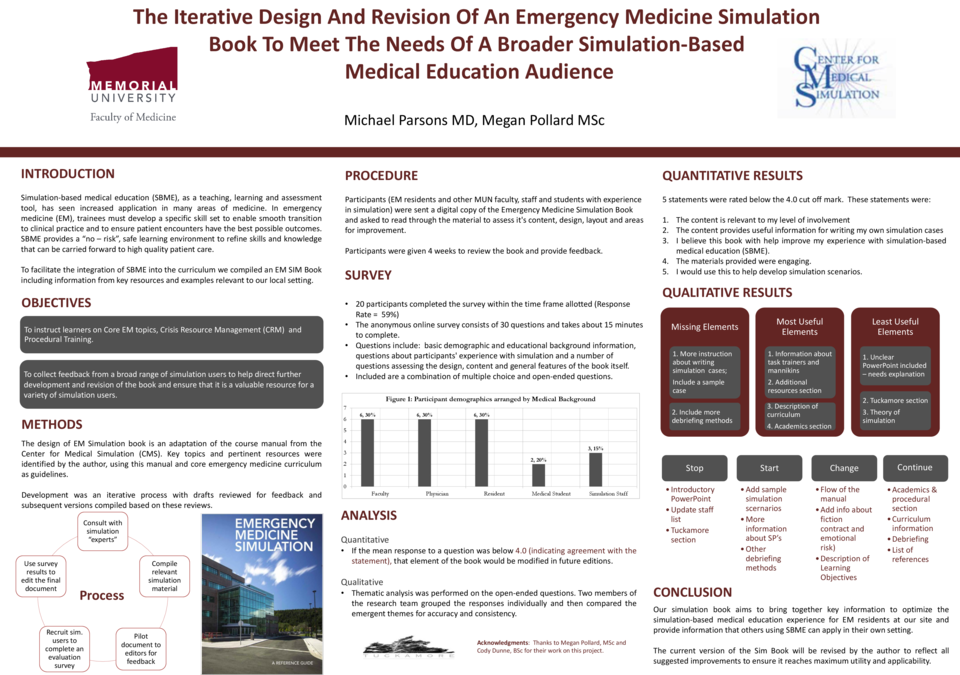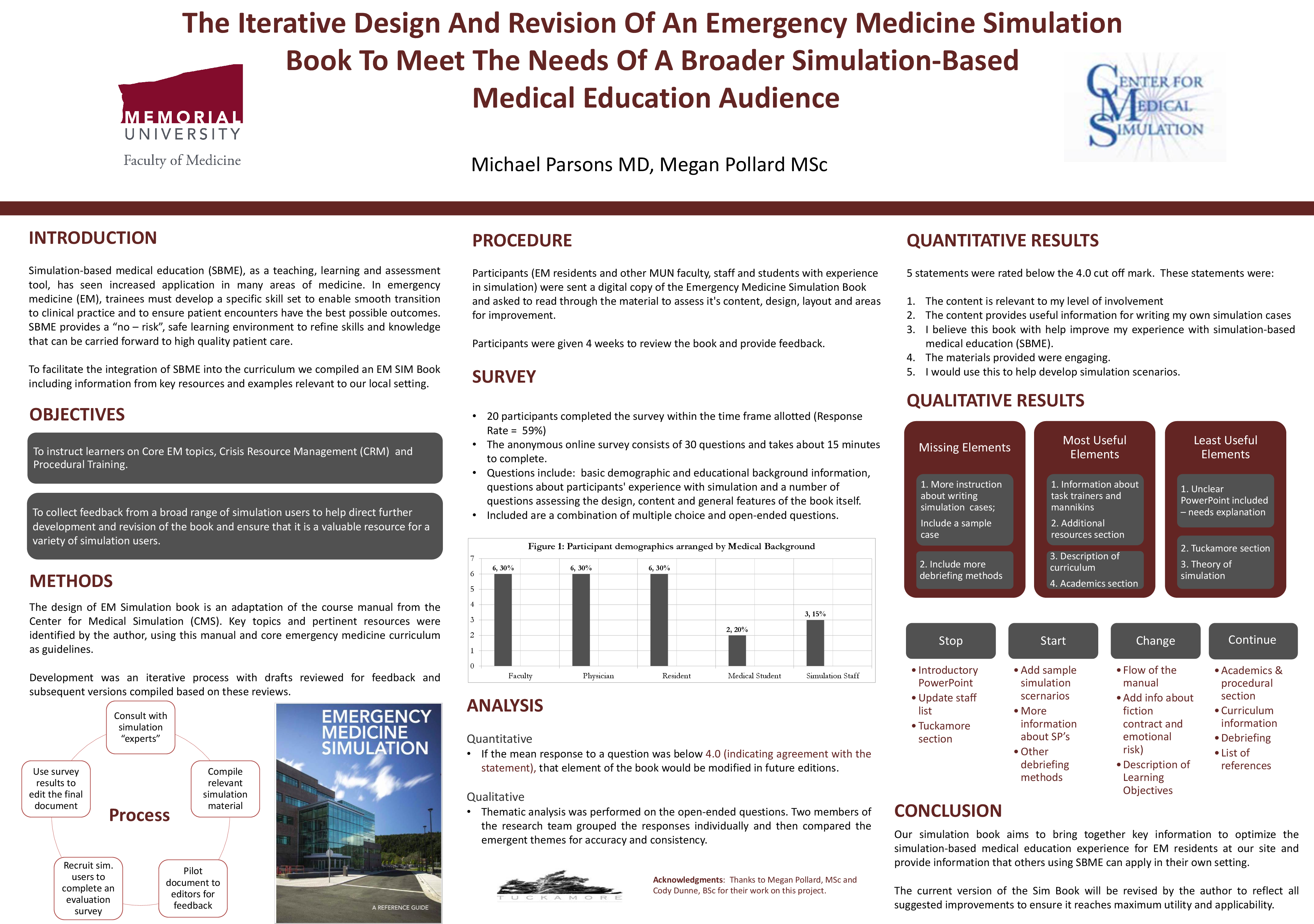Abstract
Presented at: Simulation Summit, 2016; St. John's, NL
Objective: To use feedback from a range of local simulation users to inform the iterative revision of our emergency medicine simulation book and make the document more applicable to a wider audience. Methods: The initial version of the Emergency Medicine simulation book was tailored to meet the needs of our local EM program and drew on the knowledge and experience of individuals involved directly with the program. Input was collected from faculty, students and staff at our center. Faculty simulation training background helped in the review and selection of materials on simulation theory and debriefing. Core EM resources were used to address procedural training topics. A focused listing of relevant literature and simulation resources was organized and included for further reading and exploration of the topics. To inform the next round of edits for the book, an anonymous online survey was designed for distribution to a broader group of local simulation users. Potential participants include simulation lab staff, medical students, residents, faculty and staff. To try and collect a more diverse view of the value of the document, individuals from academic and clinical areas other than Emergency Medicine will be included. The survey- based feedback will include participant views on the content, design and general features of the document. The general format of the survey design was to focus ideas in the “start, stop, continue, change” context to allow clear interpretation of what direction participants thought should be taken with revisions.
Results: Feedback from the online survey will be compiled, reviewed and used to direct the revision and further development of the simulation document. Certain core features will be maintained to ensure that the initial focus for our EM trainees is not lost. Based on feedback focused revisions will aim to meet the needs of a broader audience, make the document more widely relevant and more focused and comprehensive for all who choose to use it.
Conclusion: We describe execution of an iterative design process, using input from a variety of simulation users, to further develop a concise simulation resource that can be of value in our local simulation environment.






